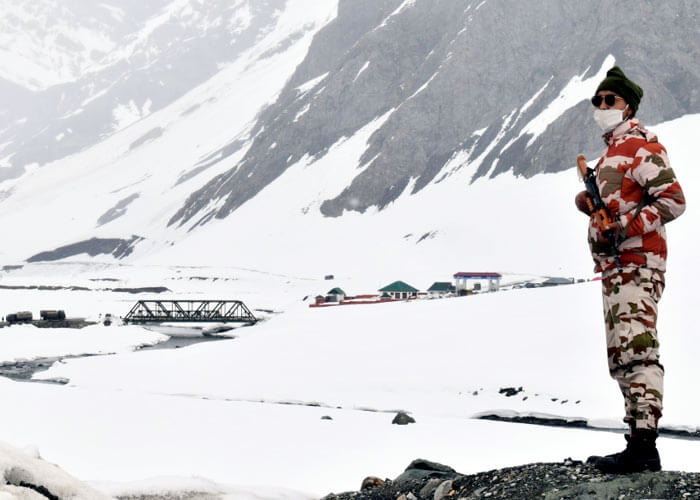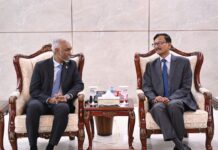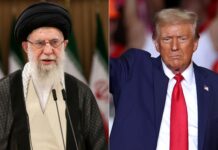LEH: Around 40 Indian soldiers who were seriously injured in the violent face-off with Chinese troops in the Galwan Valley along the Line of Actual Control (LAC) last month, had been moved for specialized treatment to Chandigarh and New Delhi ten days before the Prime Minister Narendra Modi visited Ladakh on Friday.
While 20 Indian soldiers including a Colonel level commander were killed and over 70 Indian soldiers were injured in the violent clash with Chinese troops on June 15. Accompanied by Chief of Defence Staff Gen Bipin Rawat, Prime Minister Modi during his day-long trip to Ladakh on Friday, visited the injured Indian Army soldiers hospitalised in Leh and gave a short pep talk to them.
The visit however triggered a controversy because in the video released by the TV news media, none of the soldiers appeared injured. The soldiers were seen without any bruises or bandages, sitting on spick and span beds, arranged in rows, in a large conference room rather a hospital ward, triggering speculations among his critics and the opposition that the whole visit was just a stage-managed political gimmick.
However, top sources in Army told IANS that the injured soldiers whom the Prime Minister met were the ones with less critical injuries. They did not include those who were seriously wounded. “Approximately 40 soldiers who had been serious injuries were moved to Chandigarh and New Delhi for specialized treatment, just 10 days ago,” a top official source said.
The critical patients had received “upper body” injuries, especially those involving head, which needed special treatment that was not available in Ladakh, sources said. The ones with less critical injuries have been treated and are recovering here in Leh, sources said.
“Besides, the Prime Minister met them almost 20 days after they were wounded. Most of them are in a very good recovery mode,” an official said. Another source pointed out that the bruises and injuries below neck and above ankles were invisible because all the injured patients were wearing full length and fully covered garments.
Military sources said that though the injured soldiers who have been shifted out, were critical, most of them will be able to recover and resume their duties soon. “Only in some cases, the recovery may be longer,” sources said.
The Chinese troops had used iron rods studded with nails to attack Indian soldiers, indicating that the assault was premeditated. The violent clash on June 15, was the biggest confrontation between the two militaries after their 1967 clashes in Nathu La in which over 300 Chinese army personnel were killed.
The June 15 stand-off was preceded by the Chinese aggression, beginning early May in other locations along the LAC in Sikkim, Arunachal Pradesh, as the global sentiment against the Chinese Communist Party (CCP) regime turned negative following the coronavirus pandemic which originated in Wuhan city of Hubei province in China.
However, both countries remain engaged in talks at various established military mechanisms and through diplomatic channels as well. India’s National Security Advisor Ajit Doval, India’s Special Representative is to meet his Chinese counterpart to resolve the crisis along the LAC in Ladakh.







